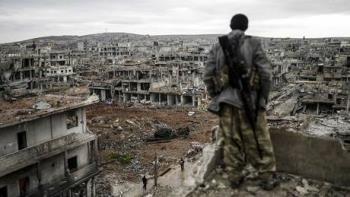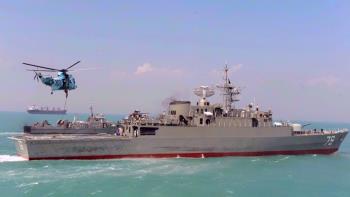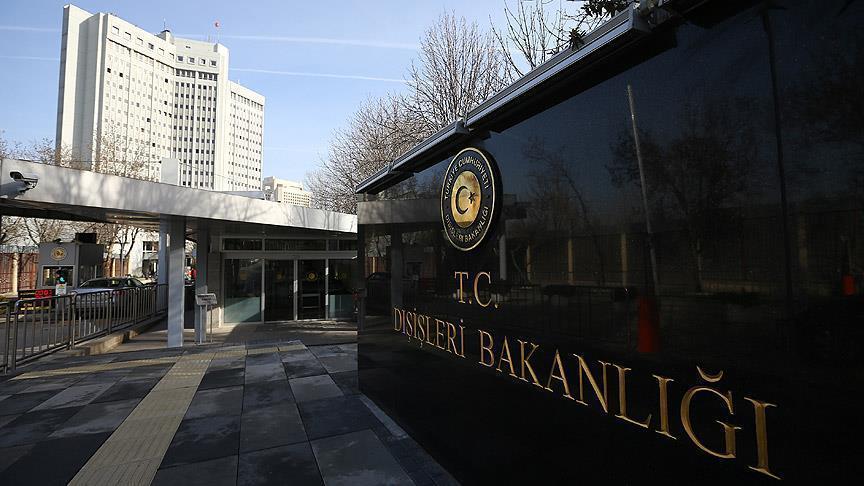Alwaght- Turkey summoned the US ambassador to express its displeasure over Washington’s criticism of Turkey’s incursion into northern Syria.
Turkish Foreign Ministry spokesman Tanju Bilgic on Tuesday demanded that John R. Bass has been summoned over the US’s "unacceptable" criticism concerning the scope and aims of Ankara’s offensive in Syria.
Turkish special forces backed by tanks and warplanes backed launched an offensive in Syria, dubbed as "Euphrates Shield" to allegedly liberate the border town of Jarablus from the ISIS terrorist group.
However, people familiar with Turkey's development believe that the main reason behind this incursion was forcing Syrian Kurdish Democratic Union Party, or PYD withdraw to the east of the Euphrates River.
Earlier, US Defense Secretary Ashton Carter called on the Turkish government to stop attacking US-backed factions of Kurdish militants in Syria and to focus on attack against the ISIS terrorist group.
The Pentagon also called for an immediate de-escalation in clashes between Turkey and Syrian Kurdish forces on Monday, saying the fighting is “unacceptable” and a "source of deep concern."
Responding to the US criticisms, Turkey's Foreign Ministry stressed that the US must honor its assurances that the Syrian Kurdish Democratic Union Party (PYD) would withdraw to the east of the Euphrates River.
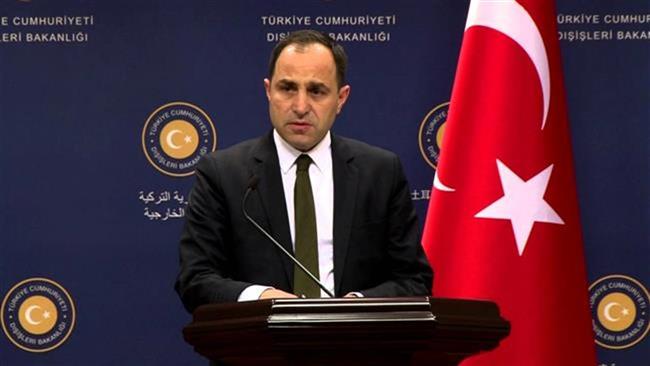
Turkish Foreign Ministry Spokesman Tanju Bilgic
YPG forces insist that they have already withdrawn to the east of the Euphrates in line with US and Turkish demands.
Ankara regards the YPG and PYD as allies of the Kurdistan Workers’ Party (PKK), which has been fighting for an autonomous Kurdish region inside Turkey since the 1980s. The YPG, which controls nearly Syria’s entire northern border with Turkey, has been fighting against ISIS.
In addition, Bilgic denied a US announcement, confirmed by Kurdish forces, that a truce had been reached between Turkish and Kurdish forces fighting in Syria.
"We are waiting to see if the US is committed to its promise that after the Manbij operation no member of the PYD [Democratic Union Party] or YPG [Peoples Protection Units] would stay in the west of Euphrates,” he said.
"The goal of the Euphrates Shield operation is clear,” he continued. “The operation was done according to international laws to protect our sovereignty, and respect for the unity of Syria. The operation will continue as long as terror from that area worries Turkish citizens."
Earlier, the Turkish military announced that three of its troops had been severely wounded after their tank was hit by rocket fire west of the Syrian border town of Jarablus.
Turkey's incursion came just days after US-backed Syrian Kurds freed ISIS-held Manbij, located south of Jarabulus.
Turkey began the operation after a coalition of Syrian rebels including the Kurdish YPG militia declared they are preparing for an operation to liberate Jarabulus from ISIS .
Attack was planned to begin from Turkish territory but it seems the army took a preemptive strike to prevent Kurdish domination in the city.
Ankara urged to end incursion
From the very beginning of Turkey's incursion into Syrian soil, Damascus has condemned Ankara's ground incursion into border city of Jarablus, describing it as " blatant violation of its sovereignty and affirms".
Syrian foreign ministry in a statement, cited by State run SANA news agency, said " What is happening in Jarablos now isn’t fighting terrorism as Turkey claims; rather it is replacing one type of terrorism with another”.
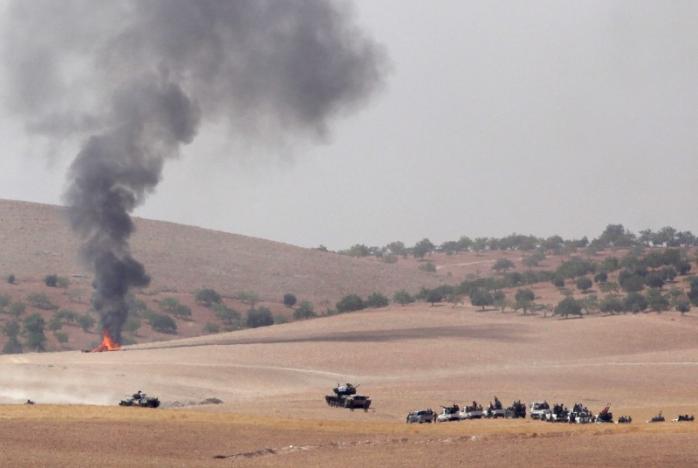
Iran that shares border with Turkey and has supported Syrian government during the crisis, has also voiced its concerns over Turkey’s continued military operations on Syrian soil.
"Increasing the scope of activities in northern Syria will result in the deaths of even more innocent people and civilians. The Turkish army must swiftly put an end to its operations in Syria,” said Iranian Foreign Ministry Spokesman Bahram Qassemi (seen below).
He noted that despite being crucial to regional security, battling terrorism must not breach a nation’s sovereignty and must be carried out in coordination with the nation’s central government.
Syria has been gripped by foreign-backed militancy since March 2011. United Nations Special Envoy for Syria Staffan de Mistura estimates that over 400,000 people have been killed in the conflict in Syria. The UN has stopped its official casualty count in Syria, citing its inability to verify the figures it receives from various sources.

